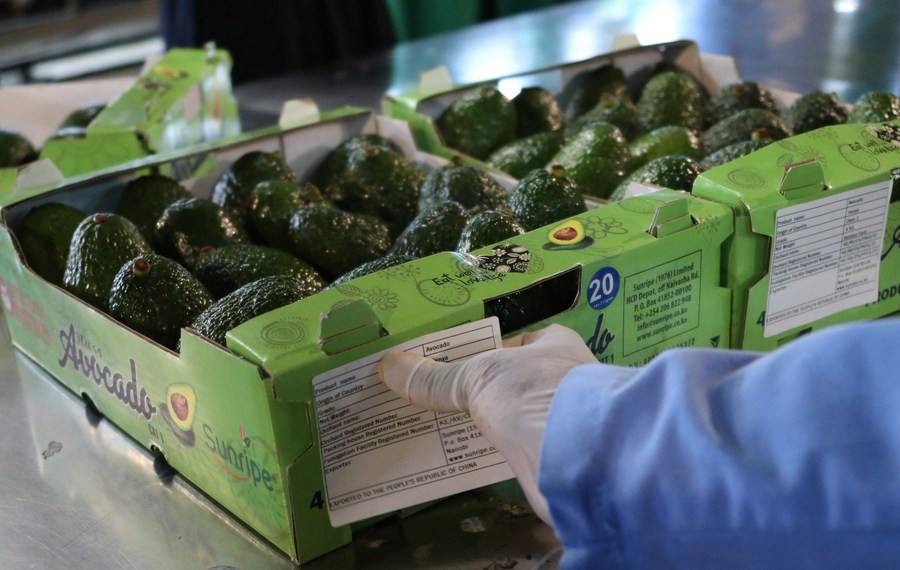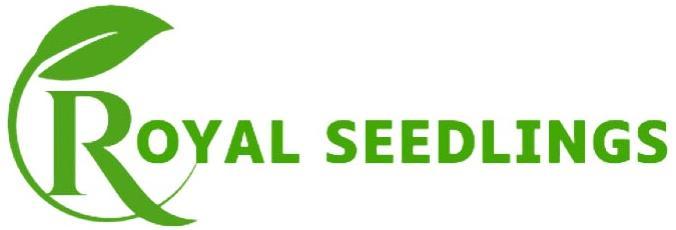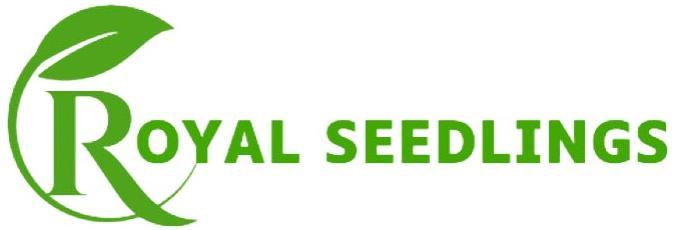Championing Sustainable Farming Practices for Hass Seedlings
The importance of sustainable farming practices in the production of Hass seedlings
Over the past decade, the demand for Hass seedlings has skyrocketed, driven by the increasing popularity of Hass avocados worldwide. However, the conventional farming methods employed in the production of these seedlings often come at a cost to the environment and long-term sustainability.
In light of this, the adoption of sustainable farming practices has emerged as a crucial aspect of ensuring the continued success and growth of the Hass seedling industry. This article delves into the significance of sustainable farming practices and highlights the pioneering efforts of Royal Seedlings in championing these practices.
By exploring the benefits, techniques, success stories, challenges, and future prospects of sustainable farming for Hass seedlings, we uncover the potential for a more thriving and environmentally conscious industry.
The growing demand for Hass seedlings
You don’t have to be a gardening enthusiast to know that Hass avocados are all the rage these days. From trendy cafes to healthy eating blogs, everyone seems to be obsessed with this creamy and delicious fruit. Naturally, this skyrocketing demand has led to a need for more Hass seedlings to keep up with the avocado frenzy.
The environmental impact of conventional farming methods
But here’s the catch: traditional farming practices often come with a heavy environmental toll. Pesticides, synthetic fertilizers, and excessive water usage can take a toll on our precious ecosystems. As responsible avocado enthusiasts, it’s important for us to consider the impact of our food choices on the planet.
The significance of sustainable farming practices
Enter sustainable farming practices. These earth-friendly techniques aim to reduce the negative consequences of agriculture while still meeting the growing demand for Hass seedlings. By embracing sustainability, we can ensure that future generations of avocado lovers can enjoy their favorite fruit without compromising the health of our planet.

The benefits of sustainable farming practices for Hass seedlings
Enhanced crop yield and quality
Sustainability isn’t just good for the environment; it’s also a win-win for farmers and consumers. By implementing sustainable farming practices, we can actually achieve better crop yields and improve the overall quality of Hass seedlings. Who knew that being eco-friendly could also mean getting more avocados for guacamole?
Preservation of soil health and fertility
Our soil is like avocado’s best friend – without healthy soil, we can kiss those creamy fruits goodbye. Sustainable farming practices prioritize soil health and fertility, ensuring that the land remains productive and fertile for future generations. It’s like giving the soil a spa treatment and a boost of nutrients, so it can keep producing delicious avocados.
Reduction in chemical inputs and environmental pollution
One of the main benefits of sustainable farming is the reduction in chemical inputs, such as pesticides and synthetic fertilizers. By minimizing these harmful substances, we can protect our surrounding ecosystems and prevent pollution of our waterways. Plus, who wants to eat avocados with a side of chemicals? No, thank you.
Royal Seedlings: A leader in sustainable farming practices for Hass seedlings
Introduction to Royal Seedlings
Now that we know the importance and benefits of sustainable farming, let’s meet the eco-warriors behind it all – Royal Seedlings. As champions of sustainable agriculture, Royal Seedlings is leading the way in producing high-quality Hass seedlings while also preserving the planet. They are the heroes we avocado lovers need!

Commitment to sustainable farming practices
Royal Seedlings walks the talk when it comes to sustainability. They are committed to using innovative techniques that minimize environmental impact, all while ensuring the production of top-notch Hass seedlings. With their focus on sustainability, Royal Seedlings is setting a shining example for the farming industry.
Techniques and methodologies employed by Royal Seedlings for sustainable farming
Organic fertilization and composting
Royal Seedlings believes in feeding their avocado trees the natural way. By utilizing organic fertilizers and composting, they provide the necessary nutrients to the soil without relying on synthetic products. It’s like giving the avocados a balanced diet, the organic way.
Integrated Pest Management (IPM)
Pests trying to snack on our precious Hass seedlings? Not on Royal Seedlings’ watch. They employ Integrated Pest Management (IPM), a sustainable approach that involves biological control, crop rotation, and other eco-friendly methods to keep pests at bay. It’s like having tiny avocado bodyguards, minus the chemicals.
Water conservation and efficient irrigation systems
Water is essential for avocado growth, but wasting it is not on Royal Seedlings’ agenda. They use efficient irrigation systems and closely monitor their water usage to ensure no drops go to waste. With their water conservation efforts, they prove that sustainable farming can be refreshing for more than just our taste buds.
So, next time you’re biting into a delicious Hass avocado, take a moment to appreciate the sustainable farming practices that went into producing that creamy goodness. Thanks to eco-warriors like Royal Seedlings, we can enjoy our avocados guilt-free, knowing that we’re supporting a more sustainable and avocado-filled future.
Success stories: Case studies on the impact of sustainable farming practices on Hass seedling production
Case study 1: Increased productivity through sustainable farming methods
Imagine a farmer named John who decided to embrace sustainable farming practices for his Hass seedlings. He ditched the heavy use of chemicals and opted for organic fertilizers, practiced crop rotation, and implemented water-saving techniques. The result? An astounding increase in productivity.
John’s Hass seedlings thrived like never before, boasting healthier leaves, stronger root systems, and higher yields. His decision to go sustainable turned out to be a game-changer, not only for his farm but also for his success as a Hass seedling producer.
Case study 2: Improved quality and disease resistance in Hass seedlings
Meet Sarah, another farmer who decided to champion sustainable farming practices for her Hass seedlings. Through proper crop management techniques and the use of organic pest control methods, Sarah experienced a remarkable improvement in quality and disease resistance.
Her Hass seedlings were no longer vulnerable to the common pests and diseases that plagued conventional farms. By prioritizing sustainability and working with nature rather than against it, Sarah not only increased the value of her Hass seedlings but also reduced the need for harmful pesticides and chemical interventions.

Challenges and solutions: Overcoming obstacles in implementing sustainable farming practices for Hass seedlings
Financial constraints and initial investment
One of the biggest challenges farmers face when transitioning to sustainable farming practices for Hass seedlings is the financial aspect. The initial investment required for infrastructure upgrades, organic fertilizers, and new equipment can seem daunting. However, there are solutions available to help ease this burden. Grants, subsidies, and financial assistance programs specifically tailored to sustainable farming can provide the necessary support.
Additionally, collaborating with other farmers or co-ops to share resources and costs can alleviate some of the financial strain.
Knowledge and skill gaps among farmers
Not every farmer is initially equipped with the knowledge and skills needed for sustainable farming practices. Thankfully, this challenge can be tackled through educational programs, workshops, and training initiatives.
Agricultural universities, organizations, and even government agencies can play a vital role in providing the necessary education and support to farmers. By bridging the knowledge and skill gaps, farmers can confidently adopt sustainable practices and maximize the potential of their Hass seedling production.
Adoption of sustainable practices at scale
While individual success stories are encouraging, scaling up sustainable farming practices for Hass seedlings industry-wide poses its own challenges. The key lies in creating awareness and fostering a supportive ecosystem.
Outreach programs, industry collaborations, and partnerships between farmers, suppliers, and buyers can all contribute to widespread adoption. By sharing success stories, highlighting the benefits, and creating incentives for sustainable practices, the entire Hass seedling industry can thrive together.
The future of sustainable farming practices for Hass seedlings: Innovations and advancements
Technological advancements in sustainable farming
As technology continues to advance, so does its potential to revolutionize sustainable farming practices for Hass seedlings. From precision agriculture and remote monitoring systems to data-driven decision-making tools, farmers now have access to innovative solutions that optimize resource usage, streamline operations, and minimize environmental impact. Embracing technology can unlock new possibilities for sustainable farming and help shape a brighter future for the Hass seedling industry.
Collaboration and knowledge-sharing platforms
In a rapidly changing agricultural landscape, collaboration and knowledge-sharing are vital for the future of sustainable farming practices for Hass seedlings. Online platforms, forums, and communities dedicated to sustainable agriculture can act as hubs for farmers to exchange ideas, learn from each other’s experiences, and stay updated on the latest advancements.
By fostering a culture of collaboration and continuous learning, the Hass seedling industry can collectively adapt and thrive in an ever-evolving world.
Conclusion: The role of Royal Seedlings in promoting sustainable farming practices for a thriving Hass seedling industry
Royal Seedlings is more than just a company – it’s a champion for sustainable farming practices in the Hass seedling industry. By providing farmers with high-quality, sustainable seedlings, along with the necessary knowledge and support, Royal Seedlings is actively driving positive change. They understand the challenges, offer solutions, and are committed to the long-term success and sustainability of the industry.
With Royal Seedlings leading the way, the future of sustainable farming practices for Hass seedlings looks brighter than ever.

FAQ
Why are sustainable farming practices important for the production of Hass seedlings?
Sustainable farming practices are vital for the production of Hass seedlings due to their numerous benefits. These practices enhance crop yield and quality, preserve soil health, and reduce the need for chemical inputs, leading to a healthier and more sustainable agricultural system.
Additionally, sustainable farming helps mitigate environmental pollution and promotes long-term resilience in the face of climate change.
How is Royal Seedlings leading the way in sustainable farming practices?
Royal Seedlings has established itself as a frontrunner in the promotion and implementation of sustainable farming practices for Hass seedlings. They employ techniques such as organic fertilization, integrated pest management, and water conservation methods to ensure the sustainability of their operations.
By demonstrating the effectiveness of these practices, Royal Seedlings sets an example for other farmers and contributes to the development of a more environmentally conscious and responsible farming industry.
What challenges are associated with adopting sustainable farming practices for Hass seedlings?
Adopting sustainable farming practices for Hass seedlings can present various challenges. Financial constraints and the initial investment required for transitioning to sustainable practices can be a significant hurdle for farmers. Additionally, knowledge and skill gaps among farmers may limit their ability to implement sustainable techniques effectively. Scaling up the adoption of sustainable practices across the industry is another challenge that requires collaborative efforts and knowledge-sharing platforms.
What does the future hold for sustainable farming practices in the Hass seedling industry?
The future of sustainable farming practices in the Hass seedling industry holds promising prospects. Technological advancements continue to emerge, offering innovative solutions for sustainable agriculture. Collaboration among stakeholders and the sharing of knowledge and best practices will further accelerate the adoption of sustainable farming methods.
With the pioneering efforts of companies like Royal Seedlings and increasing awareness about the importance of sustainability, the industry is poised for a future where sustainable farming practices become the norm, ensuring a thriving and environmentally conscious Hass seedling industry.
Royal Seedlings offers top-notch, cost-effective seedlings. Our products are known for their exceptional quality and affordability. Trust Royal Seedlings for all your seedling requirements. Call us at +254711315313 or write an email to julius.murega@royalseedlings.com for order and inquiry.






